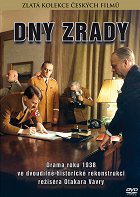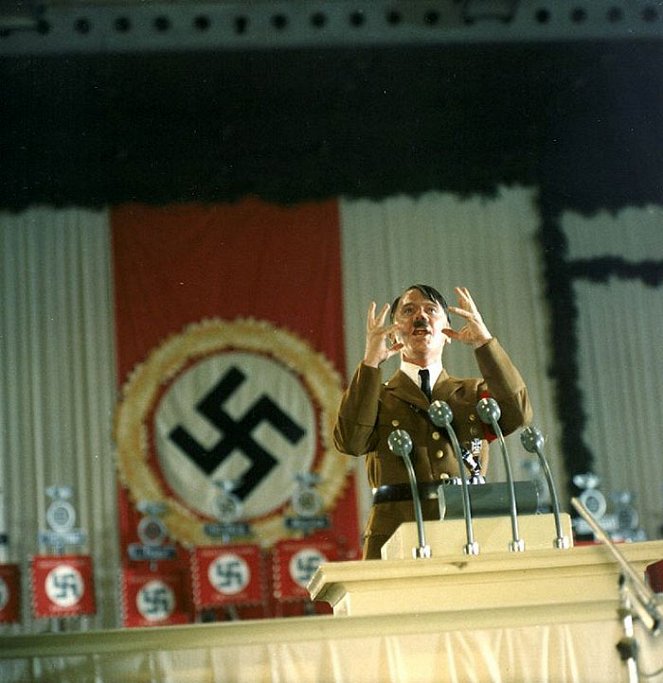Ohjaus:
Otakar VávraKuvaus:
Jaromír ŠofrSävellys:
Zdeněk LiškaNäyttelijät:
Jiří Pleskot, Bohuš Pastorek, Gunnar Möller, Jaroslav Radimecký, Martin Gregor, Bořivoj Navrátil, Otakar Brousek st., Josef Langmiler (lisää)Arvostelut (2)
I am not going to evaluate both parts separately, there is no point. It is unbelievable with how much certainty Vávra, after his very good films from the 60's, once again got into his socio-realistic mannerisms with all the classic features - characterization of characters with superficial detail (Hitler – nervousness, manic tremor, Gottwald – pipe and certainty, etc.), typified situations, which generalize the course of great history (an almost caricature rampage of German beasts in the borderland, the humble family of the proletarian Horák, etc.), a caricature depiction of the negative characters of the capitulators (in short – baldness, swelling, food, money). In an ideological plan, it is the pure dialectical materialism of the interpretation of history – the bourgeoisie carries out its subversive actions driven by fear of the emerging proletariat, which is Leninist conscious, whilst the rest of the world (especially Beneš) suffers from a confusing spontaneity of actions, and in the worst case it then intentionally harms by binding to capital. The culmination of everything is the divine corrective of history embodied by the representative of the USSR Alexandrovsky, whose "USSR will help you" resounds in the film with such intensity that it becomes a good joke ala the anti-Carthaginian cry of Kata Censoria. Nevertheless, it is necessary to give credit to Vávra in the same way as in the 1950s. He knows how to do crowd scenes. He has a certain feel for setting the tone (although most actors overact and caricature, the film has a special "historical" atmosphere and gives the impression of authenticity). In conclusion, perhaps only to what has already appeared here – that Hitler and the English and French representatives understand each other despite their language differences. Of course, it can be seen as a simplification measure, but it can (and rightly, in my view) be read as an ideological message about the distribution of forces in the world. The English and the French share a common language with Hitler, meaning that their actions give the impression of conspiratorial harmony. Even so, socialist realism worked subliminally in the 1950s, so I don't know why we should not read its relics even during normalization. This film is nothing more than another attempt to rewrite history and redefine the division of the world into a friendly east and a hostile west. Of course, at a time when it is most necessary to prove it.
()
Looking at other extreme "reconstructions" of the 1970s, Vávra's opus seems like a good compromise. Dramatically it's not a futile work, and there’s nothing particularly ridiculous or parodic in the second plan (especially from today's perspective). The attempt at authenticity is also quite honest. At that particular time and under the conditions that existed at the Barrandov film studio at that time, not much better could have been made. Of course, most of the politicians look like they were cut out of a stage play, hence the strong masks and little acting inventiveness. Apparently, only Miloš Nedbal dared to do that and thus he conceived his Lord Walter Runciman as a real character and not just as a moving picture from the period press. I don't claim to interpret history, nor do I claim that the only peaceful scenes take place in the editorial office of a communist newspaper, but I do accept it as part of normalization.
()

